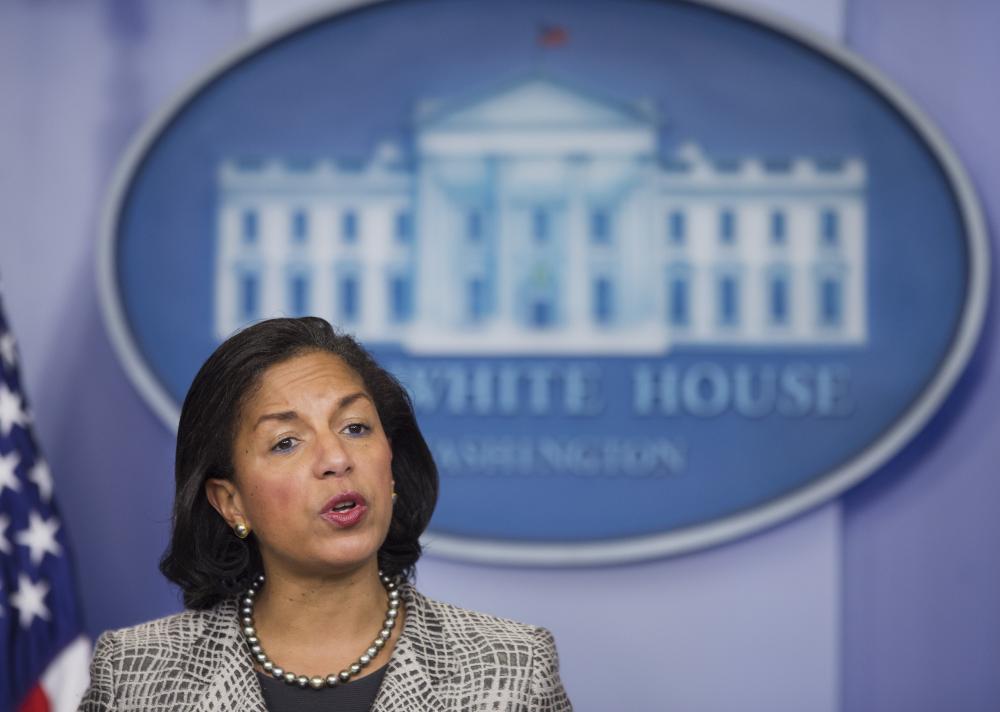In an interview with NPR, President Obama’s national security adviser Susan Rice says the United States will not be drawn into a ground war in Iraq and Syria, even if local forces are ineffective at holding gains made against the Islamic State.
Rice spoke to Morning Edition‘s Steve Inskeep the day after President Obama outlined the U.S. strategy against the Sunni militants. In a prime time speech, Obama said the U.S would “degrade and ultimately destroy” the Islamic State, which is also known as ISIS and ISIL.
With that, here are four excerpts from the interview with Rice that expand on what Obama said Wednesday:
— On the possibility that the U.S. could be dragged into a ground war in Iraq and Syria, Rice said:
“The U.S. is not going to put American forces back on the ground in a combat role. The president has been absolutely clear about that: This is not going to be Afghanistan or the Iraq war redux, with tens of thousands of Americans in Iraq.”
— On what happens if the U.S. partners on the ground — the Iraqi army and the moderate rebels in Syria — are ineffective at fighting against the Islamic State:
“We are prepared to do what it takes to degrade and defeat ISIL. But that can only be accomplished if and in fact we have effective partners on the ground. There are limits, Steve, to what we and others can do from the air. ”
— On whether the map of the Middle East could change because of the advances made by the Islamic State:
“There will be no caliphate. There will be no ISIL that holds and sustains a huge safe haven in Syria and Iraq. That poses a threat to the Untied States, to the countries in the region and, above all, to the Iraqi and Syrian people. And that’s indeed what we said we can’t allow to be preserved.”
— In his speech, Obama said this mission against the Islamic State is like the U.S. offensive in Yemen and Somalia. Steve told Rice that both of those places are not exactly paradise. He asked her if that’s what Iraqis and Syrians have to look forward to. Rice said the analogy was about the use of air power:
We have done so with sustained effect. But on the ground we have had partners that have done the fighting. In Yemen — the yemeni security forces, with whom we’ve trained and have also provided equipment and assistance, have done that. In Somalia it has been the SomaliNational army and the african union security forces and we have supported them in the same way. That is the model that we are envisioning and seeking to replicate in IRaq.
The frequency of our military strikes will undoubtably be more intense in IRaq because the threat is more intense and more sustained by the model worked. To say it’s a success, we’re not saying Somalia is a success as a state but it is fair to say that we haven’t been attacked directly out of somalia or yemen in several years. I will knock on wood as I say that. But it is a fact that cooperating with yemenis cooperating with somalis and the african union we have been able to contain and roll back the terrorist threat in both those countries and to do so with partners on the ground and U.S. air power.
9(MDA3MTA1NDEyMDEyOTkyNTU3NzQ2ZGYwZg004))
